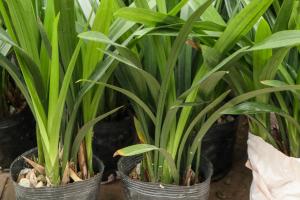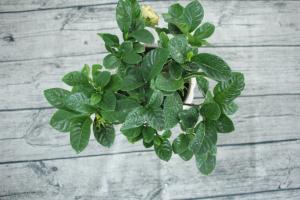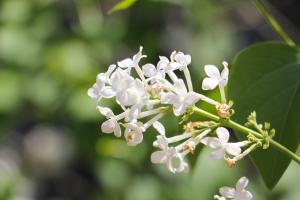What to Do When Tomato Plants Stop Producing
Seeing your tomato plants stop producing fruits can be disheartening, especially if you have been eagerly awaiting a bumper harvest. However, it is a common problem that can affect any gardener, novice or experienced. If you find yourself in this situation, do not despair. Here are some tips on what to do when tomato plants stop producing:
1. Check for Pest and Disease Infestation
One of the most common reasons why tomato plants stop producing fruits is due to the presence of pests and diseases. Inspect your plants carefully and look for signs of insect or fungal infestation. Common pests that affect tomato plants include aphids, whiteflies, and spider mites while fungal diseases include blight and powdery mildew. If you find any signs of pest or disease infestation, take appropriate action to manage the issue before it spreads.
2. Prune Your Tomato Plants
Pruning is an essential part of tomato plant care, especially as they grow taller and bushier. By pruning, you can remove the old and unproductive branches that are no longer bearing fruits. Pruning also helps to improve airflow and light penetration, which is essential for photosynthesis and fruit production. However, be sure to prune your plants the right way to avoid damaging the plant.
3. Feed Your Tomato Plants
When tomato plants stop producing, it could be a sign that they are not getting enough nutrients. Inadequate nutrients can lead to weak and stunted plants that are unable to bear fruits. Therefore, it is essential to provide your tomato plants with the right nutrients, especially nitrogen, phosphorus, and potassium. You can do this by adding fertilizer to the soil or by using natural methods such as composting or using organic fertilizers.
4. Provide Adequate Watering
Tomato plants require adequate water to thrive, especially during the growing season. When tomato plants stop producing, it could be a sign that they are not getting enough water, or they are getting too much water. Ensure that you water your plants deeply and regularly to keep the soil moist but not waterlogged. Too much water can lead to root rot, which can be detrimental to your plants.
5. Check the Temperature
Tomato plants require warm temperatures to thrive, and they can stop producing fruits when the temperature is too high or too low. When it is too hot, the flowers can drop off before they have a chance to pollinate, while when it is too cold, the plants may not produce any fruits. Therefore, it is essential to monitor the temperature and ensure that it is within the ideal range for your tomato plants.
6. Consider Your Planting Method
The planting method you use can also affect the fruit production of your tomato plants. If you are growing your plants in containers, ensure that they have adequate space to grow, and the soil is well-draining. If you are planting in the ground, ensure that the soil is fertile and well-draining. Also, consider the type of tomato variety you are growing and whether it is suitable for your growing region.
Conclusion
Tomato plants can be fickle, and they require proper care and attention to produce a bumper harvest. However, when they stop producing fruits, it is not the end of the world. By following the tips above, you can diagnose the problem and take appropriate action to remedy the situation. Remember, with the right care and attention, your tomato plants can recover and produce a bountiful harvest.

 how many times do yo...
how many times do yo... how many planted tre...
how many planted tre... how many pine trees ...
how many pine trees ... how many pecan trees...
how many pecan trees... how many plants comp...
how many plants comp... how many plants can ...
how many plants can ... how many plants and ...
how many plants and ... how many pepper plan...
how many pepper plan...

































